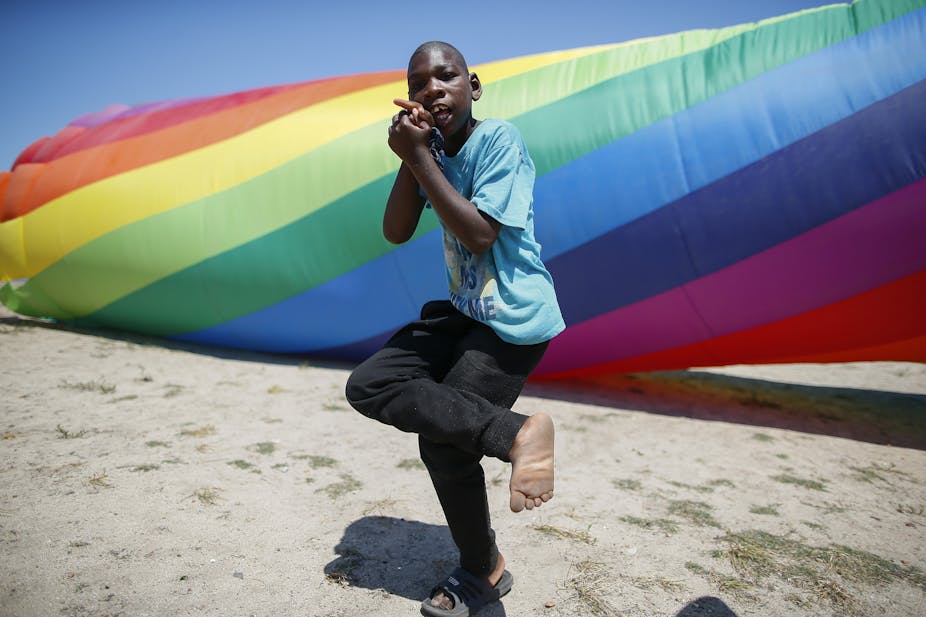Mental health conditions, disorders and diseases are rarely on the frontline of health regulations and international health agendas. But global institutions such as the World Health Organisation have been engaging with governments to improve mental health systems.
Research shows there are several barriers blocking improving mental health care. These include diminished civil society support, a lack of global consensus on mental illness and its treatment, missed policy opportunities and limited evidence on the delivery of mental health interventions.
But in the last two decades increased attention has been given to mental health as a global priority. Civil society has become more active. In addition, high impact journals such as PLoS Medicine and The Lancet have raised the profile of mental health.
The new sustainable development goals have also put mental health and wellbeing firmly on the agenda, although there has been criticism that the goals fall short of their true potential.
It is estimated that globally between 12% and 48% of people suffer from mental disorders. Over 70% of this burden lies in low and middle income countries.
In South Africa, as in many developing countries, mental health doesn’t feature as a public health priority. In rural communities mental health is not supported at all.
One of the consequences is that trauma is common in South African society. This is evident from unusually high interpersonal violence, including homicide, rape and domestic violence.
Low levels of care
At least 15% of those interviewed for the South African Stress and Health Study - the first nationally representative survey of psychiatric disorders in an African country - said they suffered from anxiety disorders. These could include obsessive compulsive disorder, post traumatic stress disorders and panic disorders. Nearly 10% suffered from mood disorders such as depression or bipolar disorders. Another 9% suffer from substance abuse disorders. Nearly a third of the respondents reported a lifetime history of at least one psychiatric disorder.
But only about a quarter of those who needed treatment were getting access. This is partly because expenditure on mental health is pitiful. On average, provinces spend less than 3% of their health budgets on mental health, mostly on psychiatric hospitals which, in any case, should be the last resort in the chain of treatment.
There are several other reasons for this dismal provision. These include:
vast distances to access specialized services,
the chronic stigma barrier in public health facilities,
inequality and poverty. People suffering from mental illness are caught in a “cycle of poverty”, which leaves little prospect of escape.
Where are the carers
South Africa’s mental health workforce is woefully inadequate. There are only 0.3 psychiatrists, 0.3 psychologists and 0.4 social workers for every 100 000 residents. Brazil has 3.07 psychiatrists, 9.60 psychologists and 1.02 social workers for every 100 000 residents.
South Africa has 800 registered psychiatrists and nearly 8 000 psychologists, mostly working in private health.
Although the government has made significant strides creating policy and passing legislation to provide mental health services, implementation has been a problem. This is because:
Most of the groups supporting people with mental disorders are non-profit organisations that survive on shoestring budgets.
A shortage of state resources for the specialised and complex needs of psychiatric disorders.
There should be strong collaboration between the service providers, particularly non-profit organisations, and the private sector. This does not happen.
Recent developments are not promising. The Gauteng Department of Health announced it will end its contractual relationship with Life Healthcare – South Africa’s largest and longest running public-private partnership. This will result in more than 2000 patients with chronic mental illness being discharged from Life Esidimeni, which means “place of dignity”.
In the absence of proper community care, people who need care often end up homeless or in jail as has been shown in the US. In addition, pressure increases on under-funded non-profit organisations.
Glimmers of hope
There are some promising initiatives in the pipeline to strengthen mental healthcare in the country and in parts of the continent.
This includes groups that empower practitioners and policy makers enabling them to lobby for mental health services. There are also consortia that investigate cost effective interventions for mental health disorders, how to scale up mental health services and enhance the health systems to deliver mental health services adequately.
The state has a responsibility to provide mental illness treatment and to promote mental health. But the reality is that it will need to tap into human resources from non-profit organisations as well as private sector funding. This collaboration can only happen if the state renews its focus on how it can deliver mental health services.

